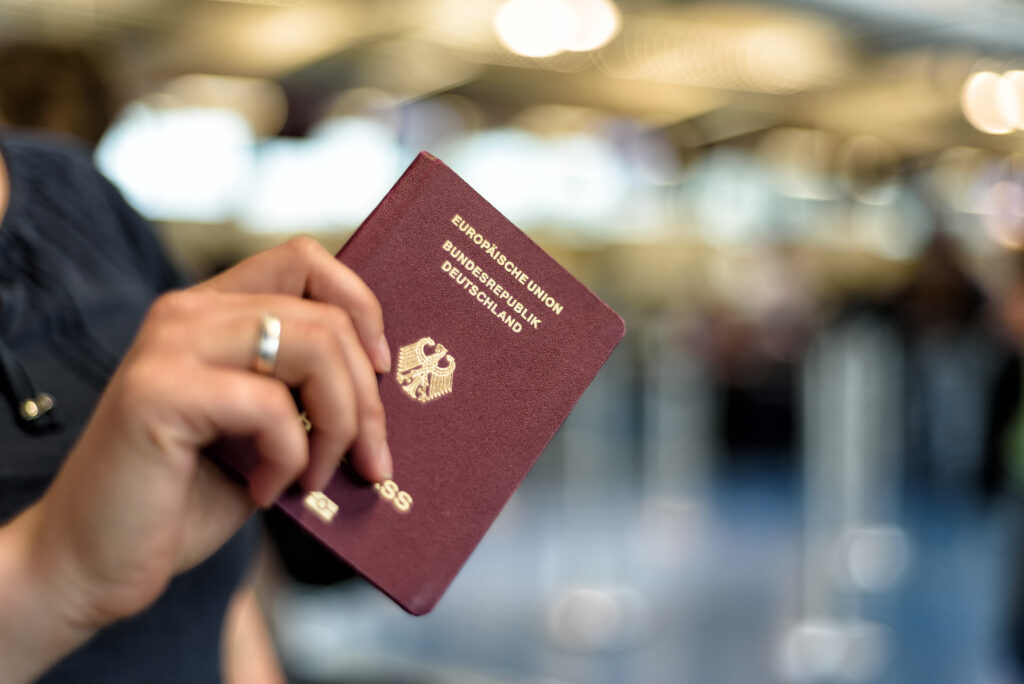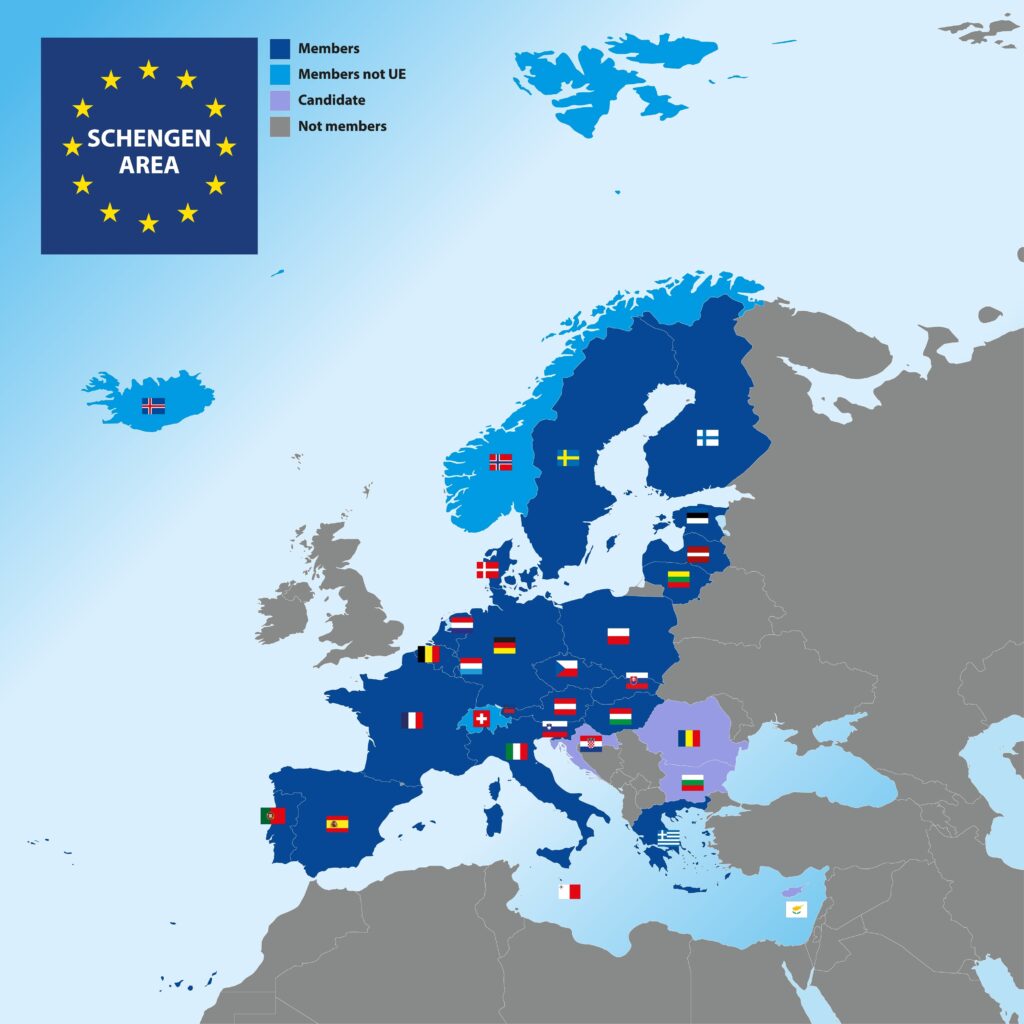By Christine Stenner, Attorney (Germany) at Stenner Law| Foreign Legal Consultant (PA) | July 23, 2025
Germany’s citizenship laws have changed significantly over time, and many people with German ancestry wonder if they might qualify to apply for citizenship. Gaining German citizenship means more than reconnecting with heritage. It can also provide the right to live in Germany and to travel, work, and reside across all 27 European Union countries.
To understand eligibility, it is important to know how German citizenship is inherited. Unlike countries that grant citizenship based on birthplace, Germany follows the principle of jus sanguinis, or citizenship by descent. This means citizenship is passed from parent to child at birth, provided certain legal conditions are met.
One of the most important conditions is timing. A parent must still have been a German citizen at the time their child was born. If that parent had already become a citizen of another country before the child’s birth, they would have lost their German citizenship under the laws of the time. As a result, the child would not have received German citizenship by descent.
This was the general rule, but not without exceptions. In some cases, Germans could retain their citizenship while acquiring another, especially if they received official permission. These options became more common after 2000 and usually do not apply to cases before 1975.
Recent legal reforms have made it easier to restore citizenship that was lost due to outdated or discriminatory laws. If your family was affected, you may now have a pathway to reclaim it.
Below are three common historical situations that we regularly help clients evaluate at STENNER LAW:
Before 1914: The Ten-Year Rule for Emigrants
In the early 20th century, German law required citizens living abroad to maintain formal contact with the Germany. Any German citizen who lived outside Germany for ten consecutive years without registering at a German consulate automatically lost their citizenship.
As a result, descendants of individuals who emigrated before 1914 and never registered with a German consulate normally can’t establishing eligibility today.
Before 1953: Loss of Citizenship Through Marriage
For decades, German women could lose their citizenship simply by marrying a foreign national. This was based on the legal assumption that a woman would automatically take on her husband’s nationality.
How the rule worked
- Before May 23, 1949: German women who married non-Germans automatically lost their citizenship, regardless of whether they wanted to or whether they acquired their husband’s nationality.
- From May 23, 1949 to March 31, 1953: A German woman only lost her citizenship if she actually acquired her husband’s nationality. If the marriage would have left her stateless, she remained a German citizen.
Important exception for marriages after May 23, 1949: Marriage to a U.S. citizen
If a German woman married an American citizen during this period, she often did not lose her German citizenship. This is because U.S. law no longer granted automatic citizenship to foreign spouses after 1922. As a result, women who married U.S. citizens after May 23, 1949, usually remained German citizens, since they did not acquire U.S. citizenship by marriage. Because German law during that time prohibited creating statelessness, these women retained their German status.
That said, if a woman later became a naturalized U.S. citizen, that could have led to the loss of German citizenship under a different provision. Therefore, each case must be reviewed based on the specific facts and dates.
Today’s remedy
Thanks to § 5 of the German Nationality Act, women who lost their citizenship because of these historical marriage rules, along with their descendants, can reclaim German citizenship by filing a formal declaration. There is no requirement to live in Germany or speak German. The deadline to apply is August 19, 2031.
Before 1975: Dis
criminatory Citizenship by Descent
Until January 1, 1975, German citizenship was generally passed down only through the father if born in wedlock. This excluded many children born to German mothers and non-German fathers. Only children born to a German mother out of wedlock inherited her German citizenship but could have lost it again if their mother married a foreigner after birth.
Who is affected
Anyone born in wedlock before January 1, 1975, to a German mother and a non-German father. Even though the mother was German, the child was not considered a German citizen at birth under the law at that time.
Why this happened
The law was based on the outdated assumption that a child’s nationality should follow the father. That did not change until legal reforms in 1975, when Germany began recognizing maternal descent equally.
What has changed
Under current law, these individuals, and their descendants, might qualify to acquire German citizenship by filing a declaration under § 5 StAG.
Why It Matters
These legal reforms represent an effort by the German government to acknowledge and correct past injustices. There is no German language requirement or German residency. However, German authorities require applicants to fill out forms in German and communicate in German as well. The deadline to apply is August 19, 2031.
At Stenner Law, we help clients assess their eligibility, locate supporting documents from Germany, prepare the necessary applications forms and communicate with the German authorities. If you believe your family’s history may qualify, we are here to guide you through the process.
About the author
Christine Stenner is a German attorney with 25+years of experience. She is admitted to practice German law in the United States and focuses exclusively on German citizenship law for clients living abroad. At STENNER LAW, she assists applicants with restoring or reclaiming German citizenship through declaration, re-naturalization, and restitution-based applications.



